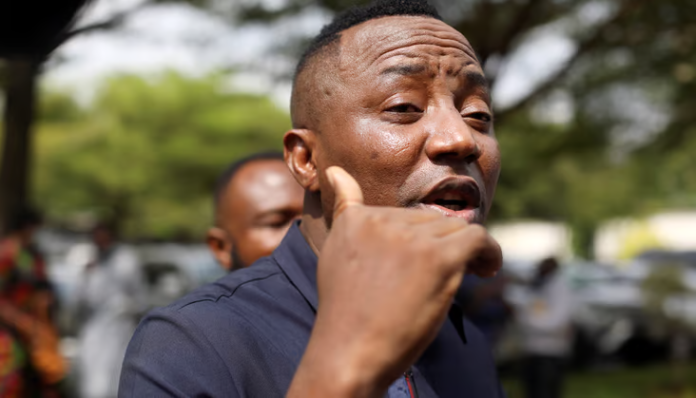Activist and former presidential candidate, Omoyele Sowore, has filed two fundamental rights lawsuits at the Federal High Court in Abuja against the Department of State Services (DSS), Meta (owners of Facebook), and X Corp (formerly Twitter), challenging what he described as unconstitutional attempts to censor his social media accounts.
The suits, filed through his legal team led by human rights lawyer Tope Temokun, seek a court order to stop Meta and X from deleting a social media post in which Sowore referred to President Bola Tinubu as a “criminal.” Sowore claims the post is protected by his constitutional right to free expression.
In the filings, Sowore argues that Nigeria’s 1999 Constitution guarantees every citizen the right to speak freely, especially on matters of public interest. He maintains that no government agency, including the DSS, has the legal authority to censor or dictate what Nigerians can say on global platforms like Facebook and X.
The lawsuits are part of what Sowore calls a broader fight for freedom of speech in Nigeria, warning that allowing the government to silence critics on social media will pave the way for digital authoritarianism.
“If state agencies can dictate to global platforms who may speak and what may be said, then no Nigerian is safe,” his petition read. “Censorship of political criticism is alien to democracy.”
Sowore’s legal team is asking the court to declare that:
The DSS has no power under Nigerian law to censor citizens on social media;
Meta and X must not become tools of repression by complying with illegal takedown requests;
His personal right—and by extension, the rights of all Nigerians—to freedom of expression be fully protected.
The lawsuits specifically call out Meta and X, accusing them of enabling censorship when they agree to remove posts critical of government officials.
“Meta and X must also understand that when they bow to unlawful censorship demands, they become complicit in the suppression of liberty,” the petition said. “They cannot hide behind claims of neutrality while authoritarianism is enforced on their platforms.”
Sowore warned that if global tech companies cooperate with illegal censorship requests from security agencies, they would be helping to turn Nigeria into a “digital dictatorship.”
“This struggle is not about personalities. It is about principle. And we shall resist every attempt to turn Nigeria into a digital dictatorship,” the activist said.
Section 39 of Nigeria’s Constitution provides that “every person shall be entitled to freedom of expression, including the freedom to hold opinions and to receive and impart ideas and information without interference.”
However, recent years have seen growing concerns over shrinking civic space and alleged clampdowns on dissent. Critics argue that security agencies are increasingly using vague national security claims to pressure social media platforms into taking down content deemed unfavorable to those in power.
Sowore, who is also the publisher of Sahara Reporters, has long been a vocal critic of successive Nigerian governments. His activism and journalism have often brought him into direct confrontation with authorities.
In 2019, he was arrested by the DSS and detained for several months after calling for a nationwide protest tagged “Revolution Now.” He is still facing charges in court from that incident.
Sowore’s legal team is calling on Nigerians, civil society groups, journalists, and human rights defenders to speak up in defense of digital freedom and civil liberties.
“Today it is @YeleSowore; tomorrow it may be you,” the petition said. “We call on all lovers of freedom to stand firm. The right to speak truth to power must be defended, not censored.”
The court is expected to assign a hearing date in the coming weeks. Until then, the lawsuits have added fresh fuel to the national debate on freedom of speech, social media regulation, and the role of security agencies in a democratic society.

